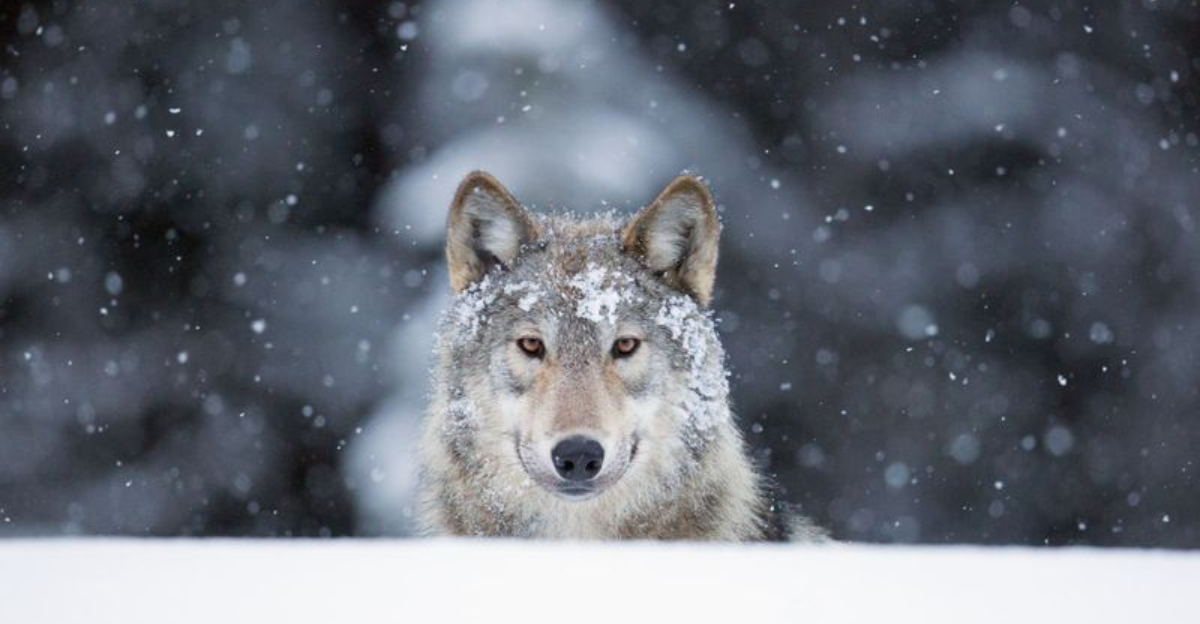Wolves are fascinating creatures revered for their exceptional hunting prowess. As apex predators, they possess a unique set of traits that enable them to thrive in the wild and dominate their territory.
Today we’ll dive into an amazing article where I’ll tell you about some amazing traits which make wolves so powerful. Let’s go!
1. Keen Sense Of Smell
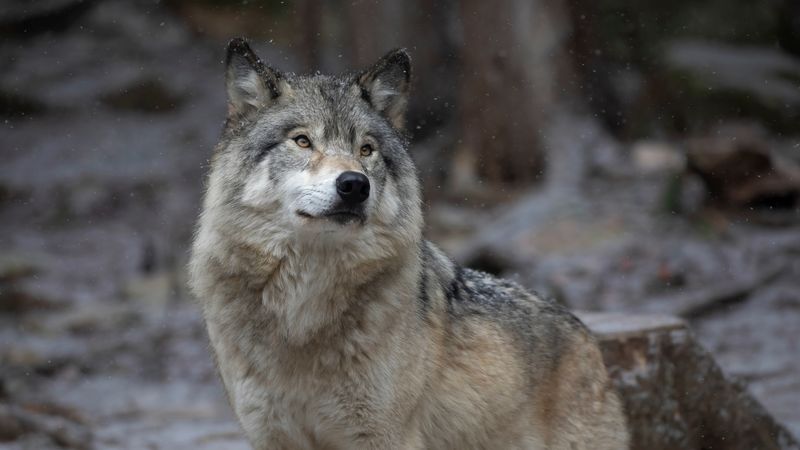
Wolves are renowned for their remarkable sense of smell, which they use to track prey over great distances. This ability allows them to detect the scent of other animals from miles away, giving them a significant advantage in the hunt.
Their olfactory prowess is not just limited to detecting prey. Wolves can also identify the territorial markings of rivals, helping them avoid unnecessary confrontations or find new hunting grounds.
This sense is particularly crucial during the winter months when food is scarce, and wolves need to cover vast areas to find sustenance.
By weaving through forests and open plains, their noses guide them, effectively turning any environment into a hunting ground.
This powerful trait ensures that wolves can adapt to various terrains and seasons, maintaining their position as apex predators. With each sniff, they gather information vital for survival and strategy.
2. Efficient Pack Communication
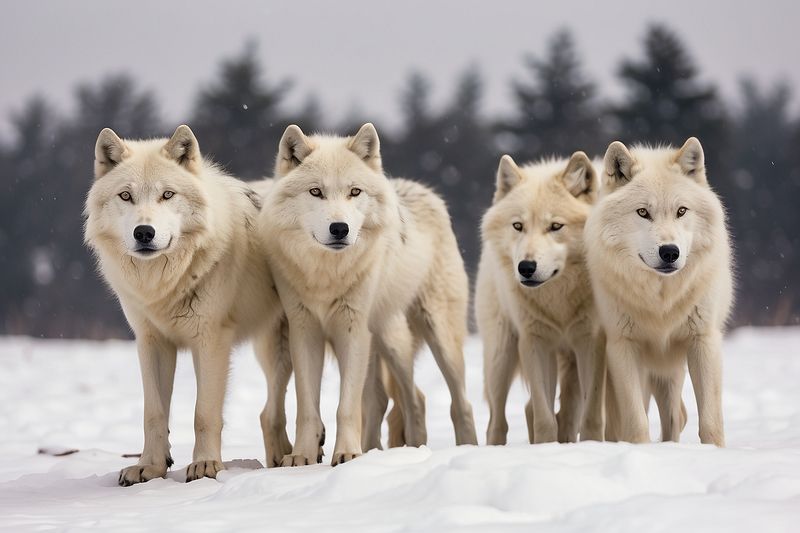
Wolves thrive on their exceptional communication skills, crucial for coordinating complex hunting strategies. Through a series of vocalizations, body language, and facial expressions, they convey intricate messages to each other.
Howling plays a significant role, enabling wolves to signal their location, alert pack members to potential dangers, or rally the group for a coordinated hunt. This level of communication ensures that every wolf knows its role during a hunt, increasing their chances of a successful capture.
In addition to vocal signals, wolves use body language, showing submission or dominance to maintain pack hierarchy.
These interactions are vital for cooperative hunting, allowing them to tackle prey much larger than themselves. This efficient communication is a cornerstone of their hunting success, making them formidable predators in diverse habitats.
3. Incredible Stamina
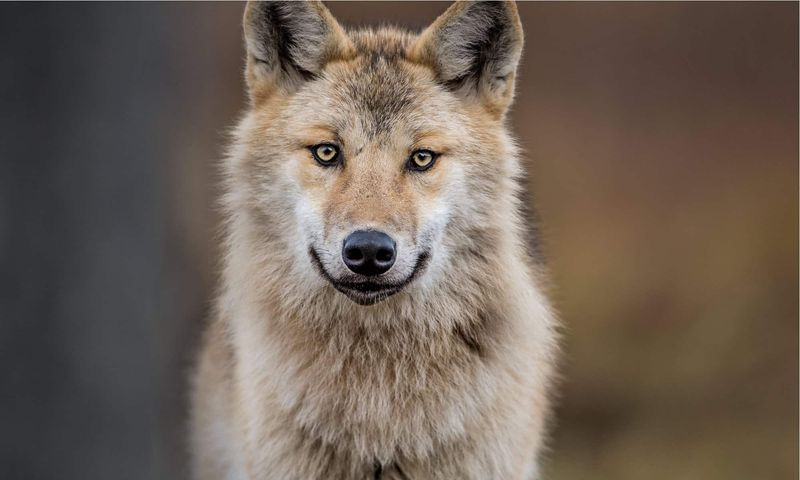
Wolves are built for endurance, with a stamina that allows them to pursue prey relentlessly over long distances. This endurance is critical for tiring out larger, faster animals before wolves make their final move.
Unlike many predators that rely on short bursts of speed, wolves can maintain a steady pace for miles, sometimes even days. This trait is particularly advantageous in regions where prey is scattered and requires prolonged tracking.
Their muscular bodies and efficient energy use enable them to keep up the chase, often travelling up to 30 miles daily in search of food. By outlasting their prey, wolves demonstrate an enduring commitment to survival and success.
4. Strategic Pack Hunting
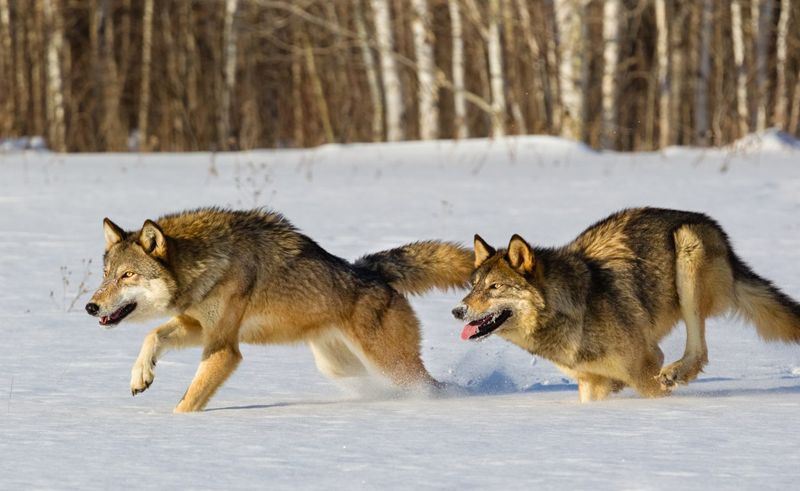
One of the most effective traits of wolves is their ability to hunt as a cohesive unit. Pack hunting allows wolves to take down prey much larger than any single wolf could manage alone.
By working together, wolves can encircle herds, isolate weak or young animals, and execute complex ambush strategies. This teamwork relies heavily on each member understanding its role, which they learn through years of pack involvement and observation.
Their strategic approach to hunting minimizes energy expenditure and maximizes success rates. This communal effort is not only efficient but also essential for survival in harsh environments where food can be scarce. Strategic pack hunting underscores wolves’ intelligence and ability to thrive in the wild.
5. Sharp Hearing

Wolves possess acute hearing, allowing them to detect sounds from great distances and identify the direction and source accurately. This keen hearing is essential for locating prey and avoiding potential threats.
Their ears can pick up high-frequency noises that many other animals may not hear, giving them an edge in environments where visual cues are limited. This capability is especially useful in dense forests or during nighttime hunts when visibility is low.
With their sharp hearing, wolves can detect the rustle of leaves or the faint footsteps of an approaching animal, enabling them to react swiftly.
This trait helps them stay alert and aware of their surroundings, maintaining their role as apex predators. Wolves’ hearing is a crucial component of their sensory arsenal, complementing their other hunting skills.
6. Highly Adaptable Diet
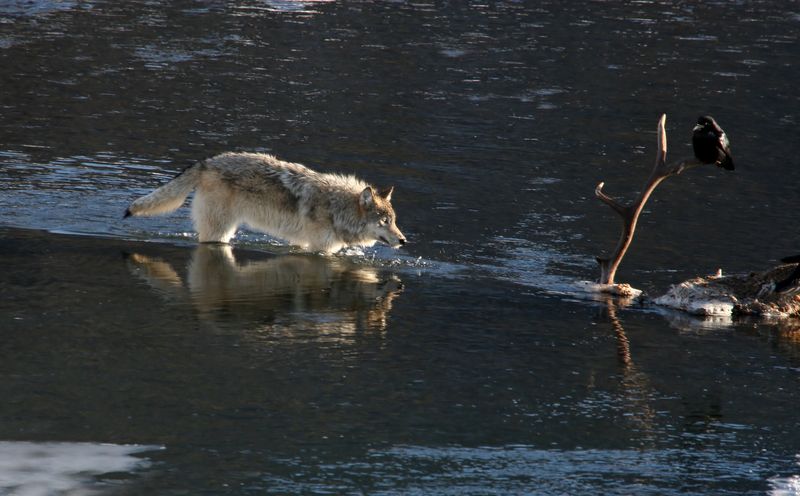
Wolves are opportunistic feeders with a highly adaptable diet that allows them to survive in diverse habitats. While they primarily hunt large ungulates like deer and elk, wolves can also consume smaller mammals, birds, fish, and even carrion when necessary.
This adaptability ensures that wolves can thrive in areas with varying food availability, from dense forests to open tundras. Their ability to switch prey based on availability reduces the risk of starvation and contributes to their resilience as apex predators.
By not relying solely on one food source, wolves can adjust to seasonal changes and human-induced habitat alterations.
This flexible diet is a testament to their survival skills, enabling them to endure in ever-changing ecosystems. Wolves’ adaptable eating habits highlight their resourcefulness and ability to overcome challenges.
7. Stealth And Agility
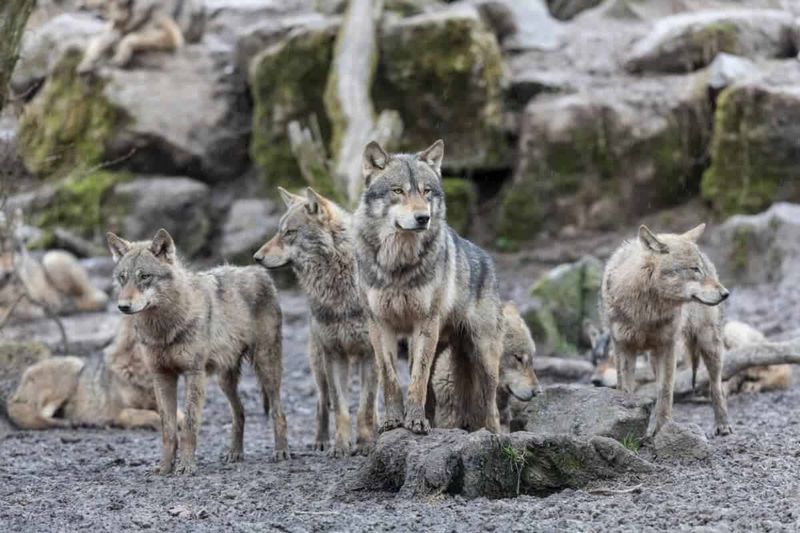
Wolves are masters of stealth and agility, traits that are vital for approaching prey without detection. These animals can move quietly through their environment, using natural cover to their advantage.
Their agile bodies allow them to navigate through challenging terrains like dense forests, rocky landscapes, or snow-covered grounds with ease. This agility ensures they can get close to their prey before launching a surprise attack, a critical aspect of their hunting success.
Stealth and agility enable wolves to conserve energy by reducing the need for long chases, striking at optimal moments. These traits exemplify their evolutionary refinement, enhancing their ability as hunters. Stealth is not just about silence but also patience and timing, qualities wolves utilize effectively in the wild.
8. Powerful Bite
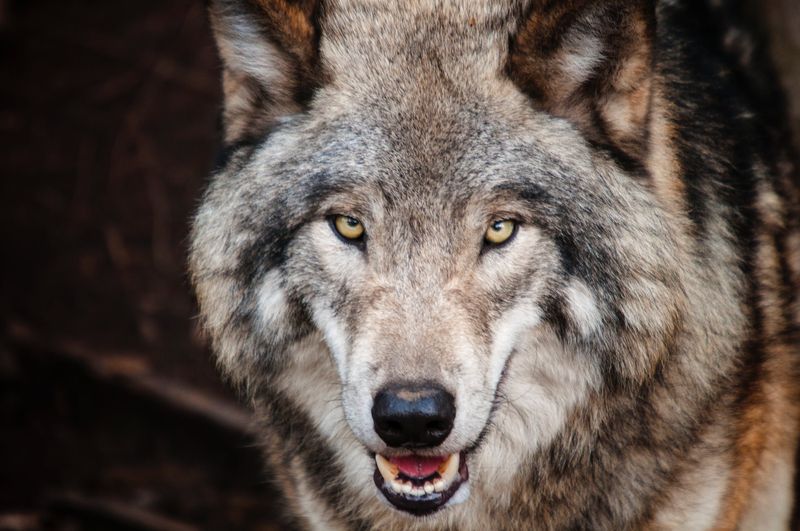
Wolves have one of the most powerful bites among land mammals, equipped with strong jaws and sharp teeth capable of delivering a forceful bite. This is crucial for subduing prey and breaking through bones to access nutrient-rich marrow.
Their bite is not just about strength but also precision, allowing wolves to tackle large animals efficiently. This ability to deliver lethal bites is essential during hunts, ensuring they can incapacitate prey quickly to avoid prolonged struggles.
The powerful bite is also vital for feeding, as it helps wolves consume their catch more effectively and share it with the pack. This trait highlights their physical prowess and contributes significantly to their success as apex hunters. With each bite, wolves assert their dominance and secure their survival.
9. Superior Intelligence
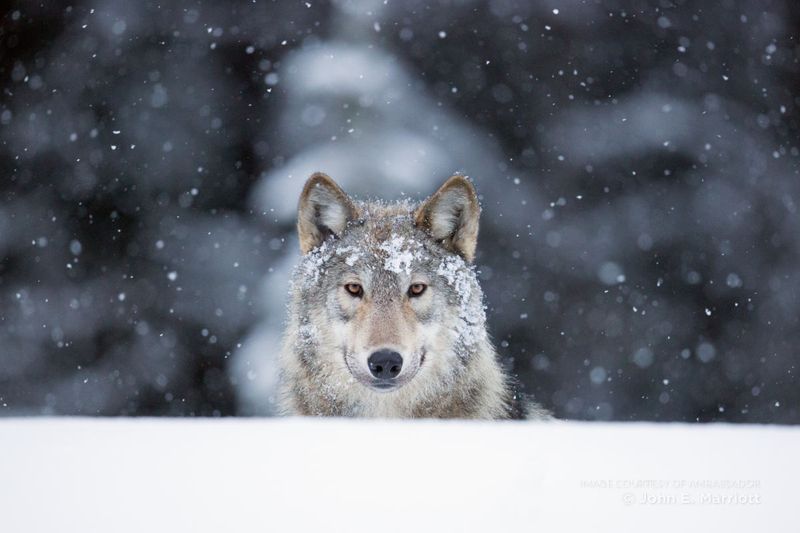
Wolves are highly intelligent animals, capable of complex problem-solving and adaptive thinking. Their intelligence is evident in their sophisticated hunting strategies and ability to learn from experiences.
This intelligence allows wolves to adapt to changing environments and develop innovative ways to capture prey. They can assess situations, make quick decisions, and even learn from past mistakes, showcasing a level of cognitive ability that aids in survival.
Wolves’ intelligence extends to social interactions, where they form strong pack bonds and communicate effectively.
This mental acuity is a significant factor in their status as apex predators, enabling them to navigate the challenges of the wild with skill and foresight. Their cunning nature and strategic thinking are key to their enduring legacy as successful hunters.
10. Strong Social Bonds
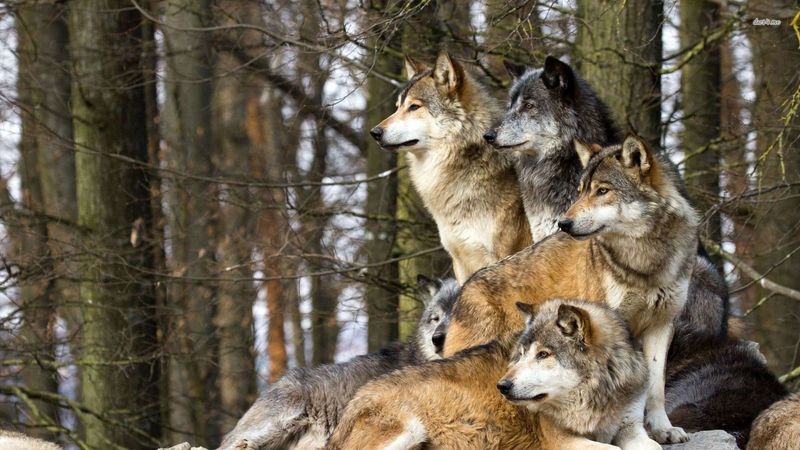
Wolves are known for their strong social structure, with packs that function like close-knit families. These bonds are crucial for their survival and effectiveness as hunters.
Each member of a wolf pack has a role, from alpha leaders to nurturing caregivers, ensuring that the pack operates smoothly. These social bonds foster cooperation, trust, and efficient division of labor during hunts.
Strong social bonds also provide emotional support, helping wolves endure harsh conditions and challenging hunts.
This unity reinforces their resilience and ability to thrive, making social structure a cornerstone of their success as apex predators. By working together, wolves exemplify the strength found in unity, highlighting the importance of community in the animal kingdom.

